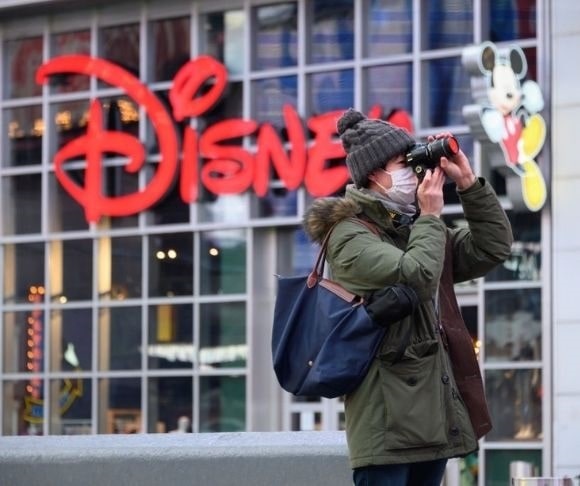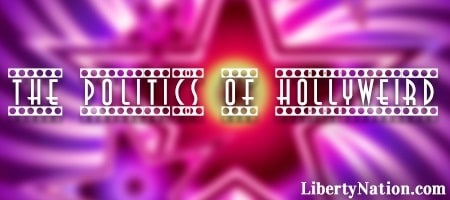
(Photo by Noam Galai/Getty Images)
Editor’s Note: Whether on screen or off, Hollywood can always be counted on to keep us entertained. This is especially true when it comes to politics. Join us each week as we shine the spotlight on Tinseltown’s A-listers and their wacky and sometimes inspiring takes on today’s current events.
The Disney Company has seen its share of troubles recently, and now it may find itself losing copyrights to many of its iconic characters. Senator Josh Hawley (R-MO) has introduced a bill that targets long-term copyright protections, which will affect many Disney characters – both old and new.
Copyrights Stripped?
Currently, the protections established under the Sonny Bono Copyright Term Extension Act of 1998 (also known as the Mickey Mouse Protection Act), ownership shields last for 95 years from original publication or 120 years from creation. Hawley’s proposal would decrease the copyright to 56 years. It would further restrict Disney’s rights to 28 years and “strip Disney and other companies of some copyright protections because it would also be applied retroactively,” The Wrap reported. Hawley said it is time to take action:
 “Thanks to special copyright protections from Congress, woke corporations like Disney have earned billions while increasingly pandering to woke activists. It’s time to take away Disney’s special privileges and open up a new era of creativity and innovation.”
“Thanks to special copyright protections from Congress, woke corporations like Disney have earned billions while increasingly pandering to woke activists. It’s time to take away Disney’s special privileges and open up a new era of creativity and innovation.”
Disney has been a strong advocate for expanding copyright protections, mainly to keep Mickey Mouse – which was first introduced to the public in 1928 in Steamboat Willie – out of public domain. The company’s efforts have made it so that US copyright law protects all creations for the creator’s life, plus 70 years. Also, any works before 1978 are currently protected for 95 years. It’s no wonder the animated film company is not a fan of this new proposal.
The bill, however, won’t just target fictional characters, but could also affect other copyrighted work such as books and TV, including film franchises such as Star Wars and Marvel.
The Wrap suggests Hawley’s bill seems to be focusing more on Disney because it targets companies “with a market capitalization of $150 billion or more (Disney’s is $190 billion) that is also classified as operating in the Motion Picture and Video Industries or in Arts, Entertainment and Recreation.”

(Photo by AaronP/Bauer-Griffin/GC Images)
So, for example, Discovery Warner Bros.’ market cap is just $42 billion, and Amazon has a cap of $1.1 trillion but has only been creating original content for Prime Video, and only for less than ten years, so they will likely not be affected. However, Comcast might feel the burn since they have a cap of $180 billion, and NBC Universal Film and TV properties could lose such creations as Woody Woodpecker, Psycho, Leave it to Beaver, and Bonanza to public domain.
Disney has been on top of the world – the king of movies and entertainment – for decades, but now it seems that crown might be taken away, or at least tarnished. The company’s woke agenda – for an organization that prides itself on being family orientated – has likely damaged its reputation and profits beyond redemption.
Politics at the Cannes Film Festival
The Ukraine-Russia war is being closely watched from every corner of the world, and most people are rooting for the underdog. At the Cannes Film Festival, Ukrainian President Volodymyr Zelensky helped to open the show via video with a message that tied Hollywood with the current unrest in his country. He told the audience that the world needs more people like comedian Charlie Chaplin to remind people that the cinema isn’t “silent” and so the rest of the world shouldn’t be either.
“Hundreds of people are dying every day,” Zelensky said in reference to his people fighting off the Russian invaders. “They won’t get up again after the clapping at the end.” He showed a clip of Francis Ford Coppola’s Apocalypse Now as a reminder of what is happening in Ukraine. “Will the cinema keep quiet, or will it speak up?” he asked. “Everything depends on our unity.” But then, quoting from Chaplin’s The Great Dictator, Zelensky offered this piece of hope: “I am convinced that the dictator is going to lose,” obviously referring to Russian President Vladimir Putin.
Zelensky received a standing ovation.
The Ukrainian leader wasn’t the only one touching on the war with Russia. Although the festival banned Russian delegates from going to the event, one Russian film, Tchaikovsky’s Wife, was premiered. The film’s director, Kirill Serebrennikov, had been put under house arrest by Putin.
 Serebrennikov asked for governments to lift sanctions on another Russian oligarch, Roman Abramovich, who is a film financer and has been reportedly helping Ukraine’s efforts. Abramovich helped fund Kinoprime which partially financed Tchaikovsky’s wife, and Serebrennikov said the films he funds are not propaganda movies.
Serebrennikov asked for governments to lift sanctions on another Russian oligarch, Roman Abramovich, who is a film financer and has been reportedly helping Ukraine’s efforts. Abramovich helped fund Kinoprime which partially financed Tchaikovsky’s wife, and Serebrennikov said the films he funds are not propaganda movies.
The Russian director has previously criticized Putin but said, “We have to lift the sanctions against Abramovich. He helps modern art, and he has for a long time now. He’s a real patron of Russia and that’s been deeply appreciated. Thanks to him, we have art house cinema.”
He also referenced Zelensky’s plea to President Joe Biden not to sanction Abramovich and then implored the viewers to not outright ban Russian culture because of the war:
“We should avoid boycotting theater, cinema, on the contrary, this is what makes people feel alive. Boycotting Russian culture strikes me as unbearable. Russian culture has always promoted human values vis-à-vis people’s souls. Russian culture has been anti-militaristic. People who trigger wars throw people in the trenches and they’re not interested in people’s pain.”
Not everyone sees it that way, and Cannes took some heat for screening a Russian Movie. Its woke credentials intact, though, Cannes is unlikely to get canceled.
Tune in next week to see what else Tinseltown has planned.
Remember to check out the web’s best conservative news aggregator
Whatfinger.com — the #1 Alternative to the Drudge

